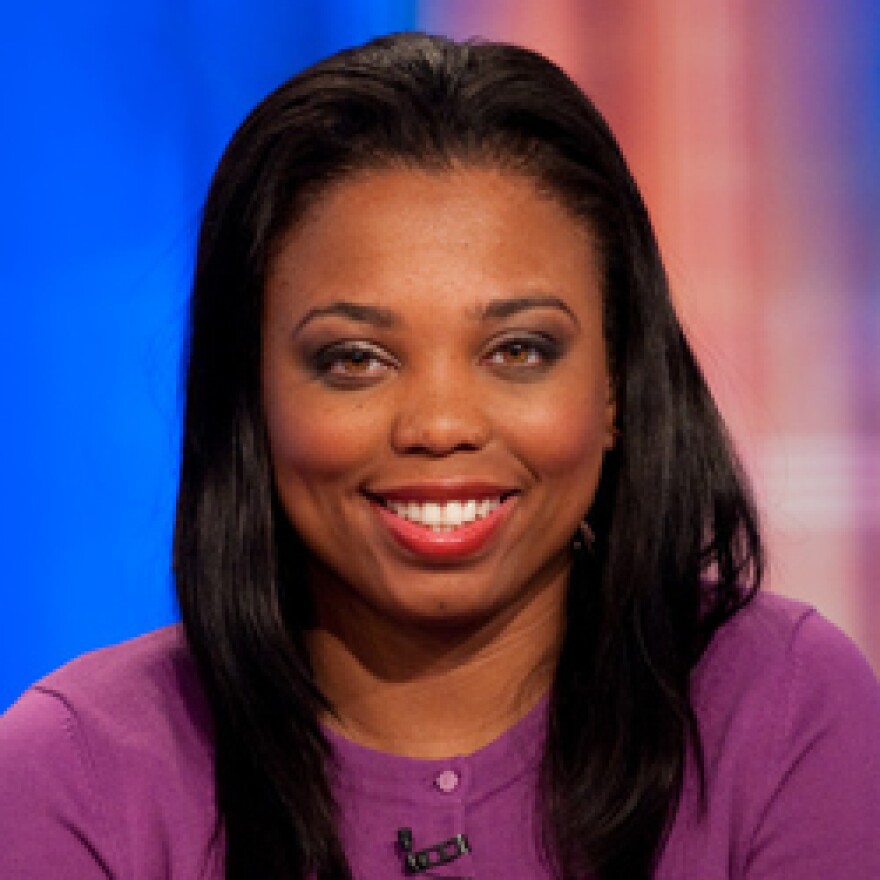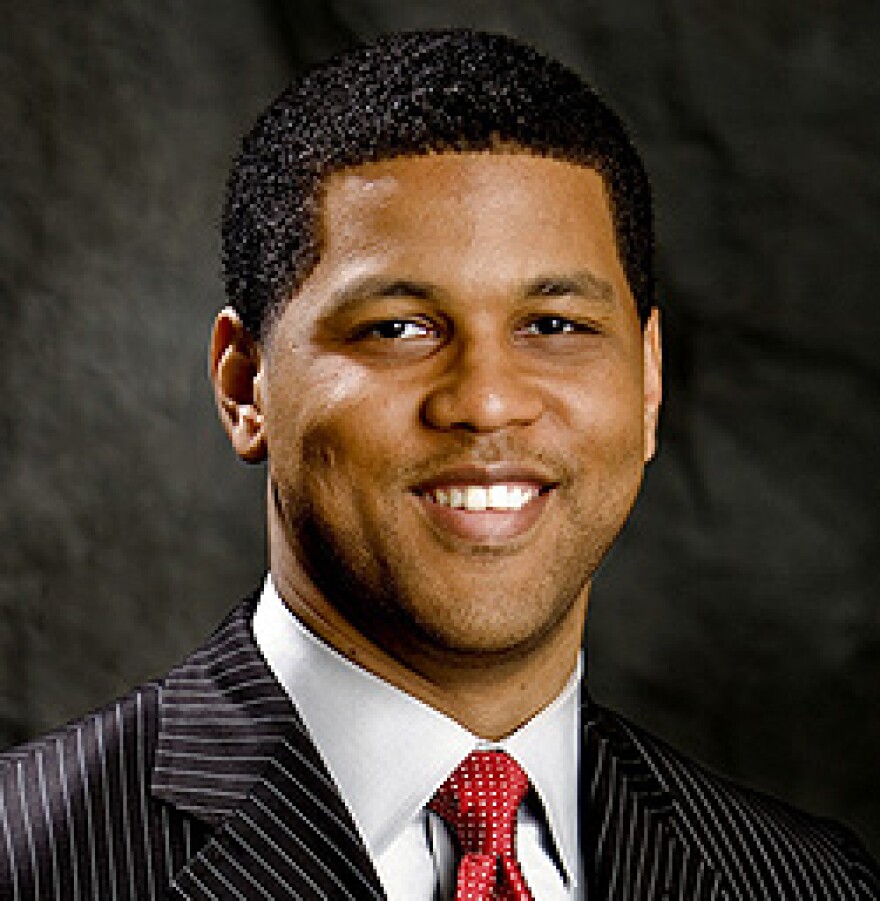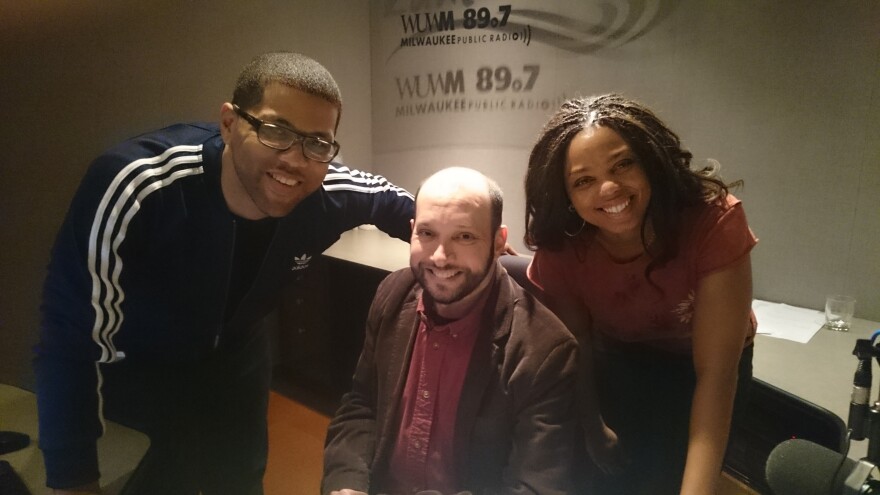The cable sports giant, ESPN, announced in October that it will soon launch a "reimagined version" of the network's signature show, the 5:00PM (Central time) broadcast of SportsCenter. In the hosts' chairs will be Jemele Hill and Michael Smith, currently co-hosts of "His & Hers" on sister network, ESPN2.
You can call ESPN2's "His & Hers" a lot of things: Distinctive. Fun. Boundary-pushing. But there's one term the hosts, Michael Smith and Jemele Hill, would prefer you don't use.
"It's not that 'debate' is necessarily a dirty word," Hill says, "but we like to think that we really pay attention to the nuance of discussions."
And that's a point that Hill and Smith thinks is worth making, especially since "His & Hers" airs immediately after another show, "First Take," that is billed specifically as debating the day's top sports stories. "But that's where sports talk is in general," Hill says. "There's gotta be a hero and a villain. It's gotta be a right and a wrong. But sometimes it's not that simple."

What is simple, though, is why the show works. Smith and Hill were good friends before they ever shared a studio. They met as fellow print journalists and hit it off quickly. "We're around the same age," Smith says, "and frankly, there aren't many minority journalists, let alone African-American female sports journalists in the country, so we naturally gravitated toward one another."
The two - whose travels took them to Milwaukee to deliver the Axthelm memorial sports journalism lecture at Marquette University this week - ran into each other a lot in Bristol, Connecticut, home to ESPN. And an idea was born.
"We wanted to do something together," Smith recalls, "some way we could take our phone conversations - which would start in sports and end up in pop culture or politics or news or relationships - and make that into a show."
It started as a podcast, but moved into the visual medium as a previous show, "Numbers Never Lie," evolved into the format Smith and Hill envisioned.
Today, their shows touch on nearly everything that Hill and Smith talked about on the phone - from March Madness, to the NFL's attitude toward domestic violence, to the South by Southwest festival (where they recently originated their broadcast). They interview athletes, wax eloquent on silly dunks, and put on a skit now and then.

They've attracted fans in the sports and sports journalism world - and way beyond. But Smith says he knows the show's brand of sports-meets-pop-culture-meets-politics won't appeal to everyone tuning to ESPN2 for analysis of last night's games.
"We don't know what [our viewers] look like," he concedes. "We like to think we appeal to everybody. The casual person might say, 'Oh, you're two Black people, so you must appeal to Black people.' Well, I would like to think so. But our conversations might come from an African-American perspective, can certainly appeal to all races and all ages."
Hill and Smith believe much of their appeal comes from their authenticity, and even if some older viewers don't get all of their cultural references, it's okay. "A long time ago, we stopped concerning ourselves with trying to be all things to all people," Smith says.
A while ago, for example, "His & Hers" stopped featuring an introduction at the top of the show. "We immediately start the conversation the minute the show starts," Smith explains. "I mean, hey, if you're tuning into the show, you already know who we are. And if you don't, you'll find out very quickly."

"It's a club. It's a party," he says. "Would we like more people at our party? Sure. But we know that not everyone wants to come - so the only people we're concerned about having enough food for, enough good music for, enough comfortable space for, are the people who come to the party. We aren't going to change who we are or how we talk about sports."
At the same time, they believe they're getting some pretty influential people to stop by the party already.
"When you meet the President of the United States," Hill says, "and he knows your show? Then I'm good with whatever the ratings say."
*Originally aired October 2016






